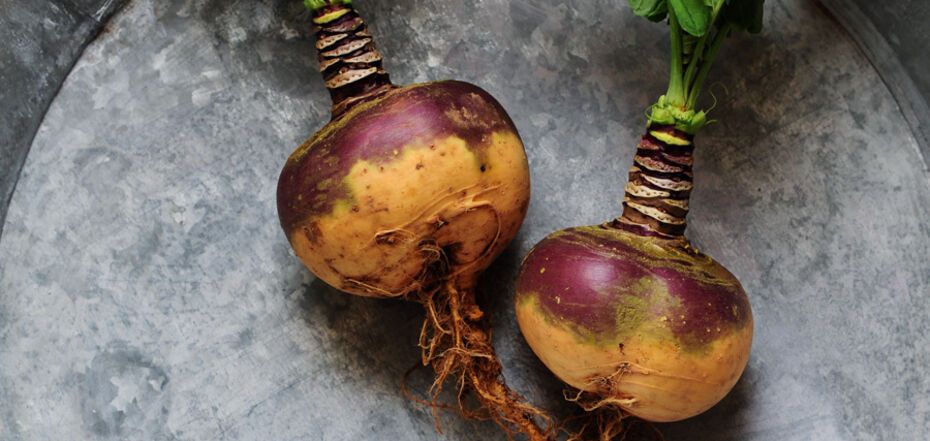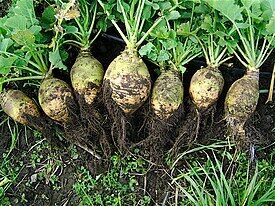News
What is rutabaga and how to grow it in the garden
Growing vegetables in your own garden is not only fun but also quite profitable and rewarding. However, there are many plants in the world that remain underestimated or even unknown to the general public.
One of these crops is rutabaga. Floristix Info told us more about it and its cultivation.
Rutabaga is a biennial root plant that belongs to the cabbage genus of the cruciferous family. It combines the best features of turnips and cabbage, making it a great choice for those looking to diversify their diet. It tastes like turnips but is much more nutritious.
Sowing
Rutabaga seeds are sown for seedlings around the beginning of April. Before that, they are disinfected in a garlic solution (25 g of garlic and 100 g of water) and germinated.
Next, take deep boxes, pour moist substrate into it and plant the seeds to a depth of 1-1.5 cm with a distance of 2-3 cm between them, and 6-7 cm between rows. Then the crops are covered with foil and kept at a temperature of about 17-18 degrees.
After the sprouts appear, the film can be removed and the box moved to a room with a temperature of 6-8 degrees. A week later, the temperature is raised to 12-15 degrees.
Planting
Rutabaga is planted outdoors about 40-50 days after sowing when the seedlings have formed 4-5 leaves. Remember that the plant does not like pinching, so you need to be careful.
The soil should be fertile, sandy loam, loamy or cultivated peat, moisture-permeable, and neutral, with a pH of 5.5-7.0.
A good solution would be to plant rutabaga after cucumbers, tomatoes, legumes, pumpkins, eggplants, melons, squash, zucchini, or potatoes.
Holes for seedlings should be located at a distance of 20 cm in a row, with a row spacing of 45-50 cm. Before planting, water them well and dip the root of each plant in a clay mash and cut off some of the leaves. When burying the seedlings, make sure that the root neck does not go deep into the soil.
3-4 months after planting, you can harvest the crop.
Care
After planting, tamp the soil, water the beds abundantly, and protect the plants from direct sunlight for the first few days. It is also worth treating the seedlings with wood ash to protect them from the cruciferous flea. Further, caring for the plant is quite simple and involves hilling, loosening row spacing, weeding, etc.
Rutabaga should be watered 3-5 times per season with an approximate water consumption of 10 liters per square meter. Although it is a moisture-loving crop, it does not tolerate waterlogging.
The first fertilization should be prepared with manure after watering the area two weeks after planting the seedlings in theopen ground. And the second time - with a solution of complex mineral fertilizers after the root crop begins to form.
Subscribe to OBOZ.UA channels on Telegram and Viber to keep up with the latest events.




























